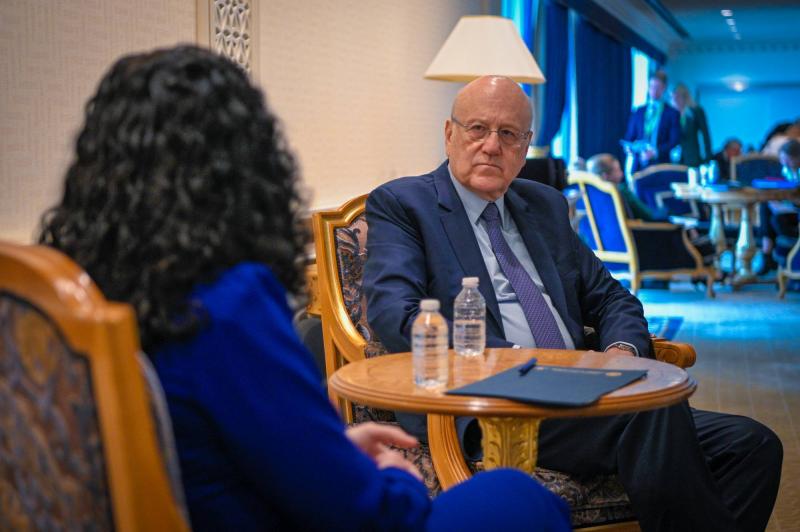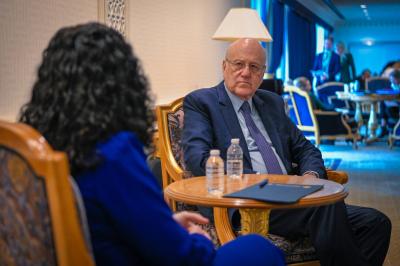The meeting of the quintet group at the Permanent Mission of France to the United Nations lasted only half an hour. It was not held at the ministerial level, as France had requested, but rather at the ambassadorial level. The United States was represented by Barbara Leaf, Assistant Secretary of State for Near Eastern Affairs, along with the Middle East Director from the French Foreign Ministry, the Saudi ambassador in New York, and the Egyptian ambassador. Qatar was represented by Minister of State Mohammed bin Abdulaziz Al Khalifi, who is expected to visit Beirut after New York.
Reports indicated that Barbara Leaf asked France to set a specific timeframe for the presidential vacancy, stating that Le Drian's mission could not continue indefinitely. Meanwhile, President Nabih Berri is awaiting President Najib Mikati's return from New York to understand the current situation regarding Lebanon. It is noteworthy that the Emir of Qatar, Sheikh Tamim bin Hamad Al Thani, warned of the dangers threatening Lebanese state institutions, calling for swift solutions to save the country from its crisis. During his speech at the United Nations General Assembly, he emphasized the need to form a government capable of meeting the hopes of the Lebanese people.
At this time, Lebanese Prime Minister Najib Mikati urged the Lebanese political forces to respond to Berri's invitation for a limited dialogue of seven days, followed by consecutive sessions to elect a president, describing it as an exit for all. He expressed hope that the concerned quintet committee would issue a call to the Lebanese to accept Berri's invitation for dialogue.
In an interview with "Asharq Al-Awsat" on the sidelines of his participation in the UN General Assembly in New York, Mikati stressed the necessity of electing a president, calling it "the beginning of the solution to the crises." He held the Christian political forces responsible for the delay in implementing the reforms required by the international community and the International Monetary Fund. Mikati stated that his government has completed the reform bills and referred them to the Parliament, which the Christian political forces refuse to convene for legislation amidst the presidential vacancy, prioritizing the election of a president above all else.
He emphasized that the solution begins with electing a president, stating: "If they do not want that, then they must consider the proposed laws in the Parliament to undertake the necessary reforms, which would send a serious message to the IMF and Western countries to reopen international aid to Lebanon, including the $11 billion from the CEDRE project."
Mikati stressed the necessity of a "change in Lebanese mentality, not just the texts," confirming that the Taif Agreement "is the agreement suitable for this time, but its implementation is the problem." He said, "The political class must convene and, for once, conduct a comprehensive analysis of how to implement the Taif Agreement. We cannot implement one article without another. The matter is integrated, and the constitution must be fully applied."




